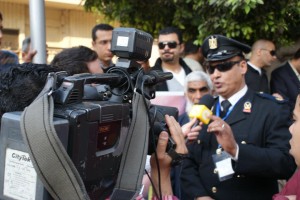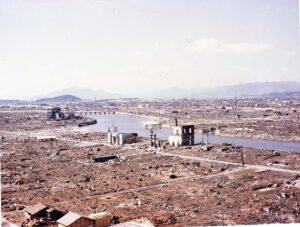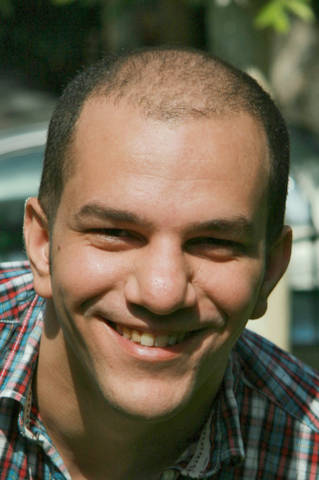Policing the beard in Egypt
By Osama Diab
In Egypt, beards have gone from indicating piety to symbolising political affiliation. Police neutrality requires officers to remove their facial hair.
Sunday 8 July 2012

A few months ago, a group of police officers decided to challenge the current Interior Ministry ban forbidding police officers from growing beards or long hair.
A few police officers decided to defy the ministerial code that regulates the appearance of police officers and let their facial hair go.
As a consequence, the ministry referred them to a disciplinary council, which is the procedure outlined in an Interior Ministry decree. The officers appealed this referral before the Cairo Administrative Court, but their appeal was rejected on Wednesday.
This new assertiveness within the police force could possibly be encouraged by the Islamists' political triumphs over the past year, in both the parliamentary and presidential elections, which has emboldened them to rebel against their previous wholesale exclusion from many aspects of public life.
Other manifestations of this trend include last week's launch of the first TV channel where all the presenters are women who wear the full-face veil.
Before the active participation of Islamists in Egypt's political life, it was hard to imagine a bearded man in a police uniform or a face-veiled woman presenting a TV show.
According to a report by the daily al-Masry al-Youm, the police officers said they should be allowed to express themselves freely, which is a right protected by the constitution.
They also argue that the ministry's decree contravenes the principles of Islamic law, which is an important source of legislation, and with international agreements and conventions that Egypt has signed.
Even though their argument might have some validity to it, would allowing police officers to grow their beards threaten the aspired-for political impartiality of state institutions? Would secularists be guilty of double standards by calling for freedom of religion and expression while preventing police officers from freely expressing their own beliefs?
Until recently, the Islamic beard (especially the Salafist version of it) used to signify piety and symbolise a greater commitment to one's faith, that is, a purely religious symbol. However, now that Salafist groups have extended their activities beyond preaching and into politics, does the beard still remain a purely religious symbol, or does it have political and partisan connotations to it?
Since the establishment of post-revolutionary political parties in Egypt, especially the Salafist al-Nour party, whose members almost to a man grow their facial hair in a very distinctive fashion, the beard has become a clear indicator of partisanship and political affiliation.
In times of political turmoil such as we are currently experiencing, building politically neutral state institutions is all the more challenging because most have still not recovered from the blow dealt them by the 25 January revolution. Without careful monitoring, they could become easy prey for rising political powers to infiltrate and manipulate to their own favour.
Egyptians have long suffered from a police state whose main role was to safeguard the interests of a corrupt and authoritarian regime. During protests against the ruling party or president and during any kind of elections, the police, and other state institutions including the judiciary and the media, used to side with the regime. State security used to closely monitor dissident activities and, in many cases, arbitrarily arrest and torture those who they defined as a threat to the regime.
The political neutrality of the police force is one of the most important goals in the process of transitional justice that Egypt is supposedly undergoing.
This case is about the neutrality of state institutions more than it is about religious freedom. And unfortunately it is Islamists groups who are creating these deep philosophical concerns by mixing religion with politics and then calling for religious freedom in politically sensitive institutions.
The rising influence of political Islam combined with the police's long history as an oppressive politicised tool in the hands of the regime makes it risky, at least during a transitional period, for this massive monster to take sides in political battles.
The memory of state brutality is still too fresh to allow the police to fall under any party's control, especially those with questionable democratic credentials.
—-
This article first appeared in The Daily Newson 8 July 2012. Republished here with the author's consent.



That might be better than the current model. All police could learn from this system
Not a bad idea. Then we can
transform the Egyptian police into a force of jolly Santas and, instead
of patrol cars, they can go round in sleighs. Also, instead of police
stations, they can have police grottos where tiny elves write reports
and interview citizens.
Why not just make them all
wear fake beards so that way no one knows, and then the religious people
can still keep their real beards and feel pious.
“Religious Freedom” and “Democracy” are uneasy partners. All too often one manipulates the other to its advantage.
What is important is the priority of values. Which is more important in
this situation. Although I believe strongly in authentic religion,
“democracy” in this case must be supreme.
Thanks Margarida. Glad you like it!
Great, as usually, dear Osama ♥
Of course it’s not enough to ensure neutrality, and its the lack of checks and balances that makes me worry of politicising the police.
You make a valid argument about “political affiliation” and, of course, state institutions should be neutral religiously. But forcing officers to shave does not ensure that neutrality – an officer can be clean shaven and a bigot and have a beard and be neutral and fair. Effective checks and balances are more important than razors, in my humble view.